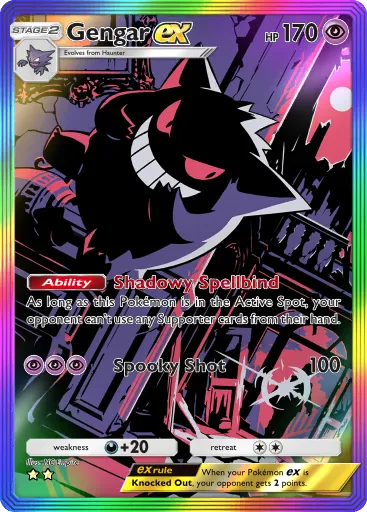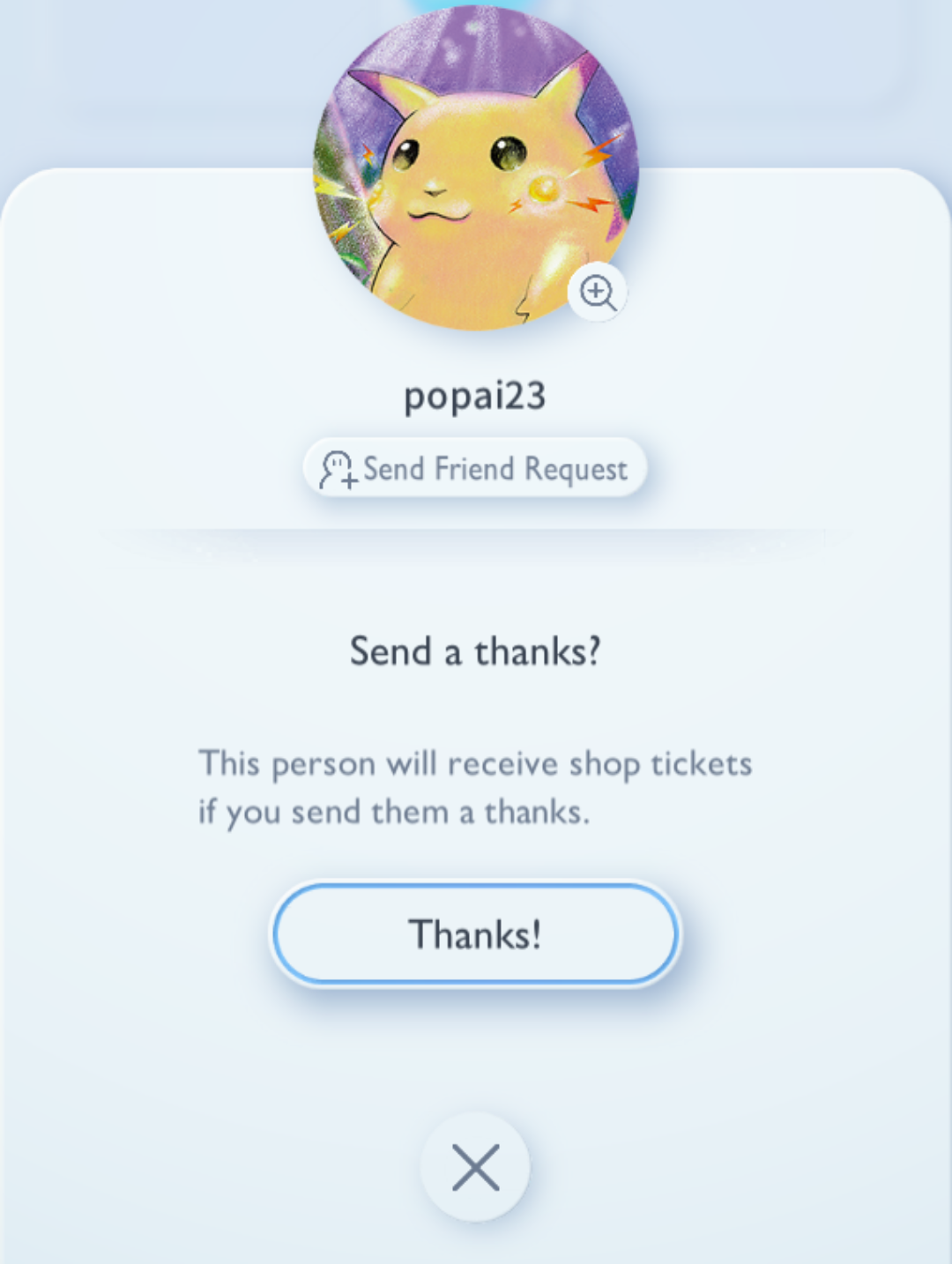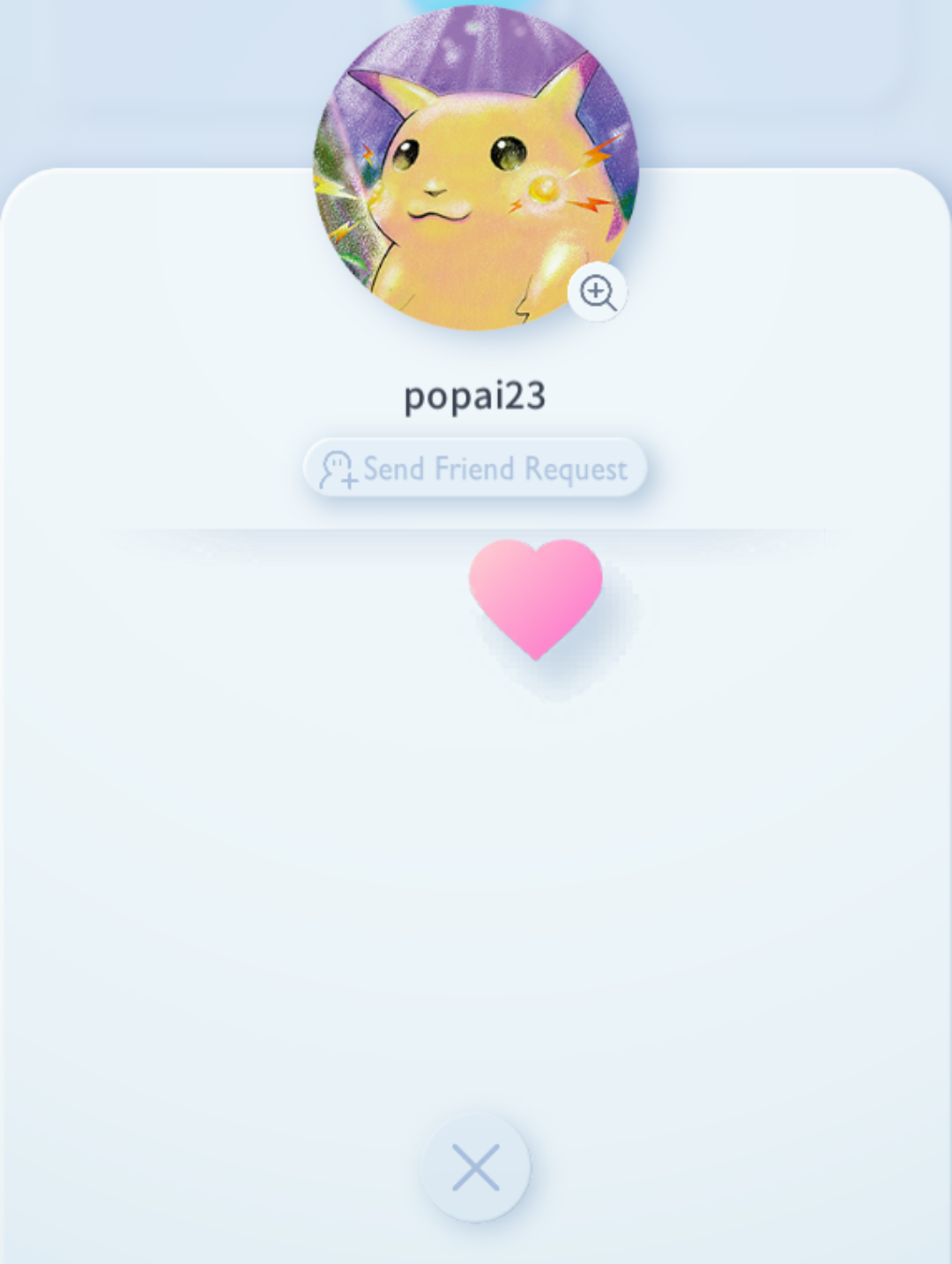
The Pokémon Company recently released a mobile adaptation of the Pokémon trading card game called Pokémon Trading Card Game Pocket or, as I’ve been calling it, Pokémon Pocket. It is one-part card-opening simulator, offering players a virtual simulacrum of the exquisite thrill of busting open booster packs, and one-part card game, featuring a stripped-down and streamlined version of the traditional Pokémon card game. I don’t think that this mobile game is especially important or life-changing—I don’t even think that the Pokémon card game is all that good, at its core—but I do think that it does a few things very well and I wanted to talk about one of those in particular.

Games in Pokémon Pocket take about 5 minutes or less to complete. The Pokémon card game is a very swingy game, with matches often decided by series of literal coin flips.1 Maybe you dismantled your opponent with an early lucky Misty. Maybe they bullied you with the Mewtwo-Gardevoir combo that seems to be ruining everyone’s day lately.2 Regardless of the results of the match, win or lose, games always end the same way: you are asked if you would like to “thank” your opponent. If you do thank them, they will receive a shop ticket, which can be used to purchase items that help you progress along your journey to collect ’em all. Thanking your opponent does not cost you anything; your options are simply to hit a button labeled “Thanks!” or to hit an X that bypasses the screen. That’s all. “Send a thanks?” I think that this is such an elegant and thoughtful little flourish of design.
In contrast with the exquisite pleasure of playing card games in person, virtual card games can be oddly hostile and dehumanizing. You play against a faceless opponent and usually have very limited means of communication with them. In the case of Pokémon Pocket, you have no means of communicating with them. All you know is that you are in contest with them and their success necessarily means your failure. Maybe you have a satisfying competitive back-and-forth, the sort of match where if you were in-person, you’d both exhale and maybe laugh or playfully cry out at its conclusion. Or, maybe you draw like shit and your opponent effortlessly crushes you in a few swift turns. A game like that can leave you feeling a little aggravated, a little enervated, a little irritated. It’s brief, but it’s like getting a splinter in your brain; you were looking for a quick little hit of satisfaction and instead you got a tiny drop of humiliation. And what of the soulless ghoul that did it to you? Again, it’s momentary, but perhaps you feel a little flash of hatred for the repellant little freak that must be on the other side of the embarrassing defeat you’ve just suffered. It’s miniscule, but it’s there, a little pin-prick of loathing needled into your heart.
But what’s this? “Send a thanks?” Well.. I mean.. I guess they weren’t that bad. It’s not their fault my draws were unlucky. And their deck was pretty cool, I think I’d like to try it once I open up a Starmie. I don’t see why I shouldn’t send them a little thank you for the game. And sure enough, when you return to the home screen, your own Gift Box has a little red dot next to it. It seems as though your opponent was gracious in their victory and sent you a little thank you for the game in turn. And why wouldn’t they?
I am exaggerating a little, of course—but only a little. Or, rather, I am narrativizing that which is normally felt and not said, experienced on a scale of milliseconds. These little peaks and troughs of pleasure and emotion are the exact terrain that mobile games target, though I seldom (personally) find them to be effective navigators. This little “thanks” mechanic though, it is a very canny way of exploiting something that psychologists have long known: that Doing is often Feeling. Our thoughts and emotions and perceptions are often determined by what we do, regardless of whether we even “choose” to do that thing. When you feel happy, you smile, but if you smile, you are also more likely to feel happy. It can even work retroactively, where our memories of how we felt at some point in the past are altered to better reflect what we are doing Right Now. If your only means of interacting with an individual is to Thank Them with a Little Gift—and they you—you are far more likely to have positive feelings towards them and in general. These are small effects, of course—not of great impact to the individual and not true for every single person—but I am reasonably confident in them.3
By way of illustration, contrast this experience with that of another virtual card game. In Hearthstone, your primary means of communication with your opponent is through the use of “emotes.” You can click on your character and choose from a handful of small soundbites to play, with options like “Thanks”, “Wow”, and “Well Played”. Many players use these emotes as intended, offering a pleasant “Greetings” when the game begins and a “Well Played” before its conclusion. Some players, however, find alternative uses for them. You wouldn’t believe how frustrating it can be to hear a fantasy Hunter exclaim “Astounding!” before wrecking you on turn 4 with his cheap little aggro deck what is he 12 years old jesus christ why i am even playing this game do i really hate myself this much.4 And if emotes weren’t sufficient for your opponent to communicate their distaste for you, they could always message you after the match. There was no greater thrill than winning a game and seeing a little Friend Request notification pop up immediately afterwards. There was no telling what sort of verbal abuse you were about to receive. It was exhilerating but it was also almost certainly poisonous for my soul. I would have much preferred a quick mutual exchange of “Thanks!” with my opponent and we could go on our merry little ways.
Of the couple-hundred of games I’ve played in Pokémon Pocket, I have never failed to send my opponent a “Thanks!” Even opponents who just close the game without conceding after a particularly-devastating play of mine, who then force me to wait as they auto-concede from timing out, even they are granted mercy in the form of a “Thanks!”—even though I know that I won’t be receiving one from them in return! All are made equal and pure in the cleansing benevolence of “Thanks!” I hit the button, a pleasant little jingle rings out as an animated heart floats up the screen—confirming that yes, you’ve done a good thing, and you should feel good—and I continue on with my day.
As to why the developers implemented this system, I suspect it’s for just the reason I’ve outlined above: it makes players feel good. The cynical reading of this is that, of course, players who feel good will spend more time playing the game, feel more invested in it, and eventually spend more money in it. But this cynical reading is not mutually-exclusive from a more optimistic one: the developers are also just trying to make playing the game a more pleasant experience. They have undoubtedly seen the more hostile and depersonalized version of virtual card games and they were hoping that, in some small way, they could make theirs a little better. And I think that they succeeded.

Some final errant thoughts:
- It should be noted that there is no form of direct communication in Pokémon Pocket at all. This is not unusual for Nintendo products;5 they want their games to be family-friendly and safe for kids at any and all cost, and this usually means just eliminating communication between accounts altogether. Even if you are “Friends” with another person in Pokémon Pocket, you cannot message them in any way.
- Eagle-eyed and elephant-brained readers will recall that I have recently taken to the Pokémon Trading Card Gameboy games. Pokémon Pocket really came at a great time to capitalize on my enduring affection for those games, especially considering that I have no intention to purchase actual Pokémon cards.
- Look at that, a tight little 1500-word post. How humble! How quaint! How legible!
Footnotes
If that sounds frustrating, that’s because it is! This is just what playing the Pokémon card game is like, I am told. I could never stomach it at an actual competitive level.↩︎
To be clear, it is not ruining my day. I am the one ruining everyone else’s day with it.↩︎
At least, I am personally confident, if not scientifically confident. The whole reason that I keep a blog like this is so that I can set my scientific scruples aside, so I hope you can excuse this little indiscretion.↩︎
Actually, when it first launched, Hearthstone had another emote: “Sorry.” It was removed about two years after the game’s release, because it turned out that players used it almost exclusively to grief their opponents. I for one can still hear the sound of the Paladin hero saying “I am sorry” when I close my eyes at night.↩︎
Technically, this is not a Nintendo product, though it’s certainly Nintendo-affiliated. If you found yourself thinking “this isn’t a Nintendo product” in response to my implying that it was, I regret to inform you that you have a sickness of the brain that can never be cured. It’s okay. I have it too.↩︎